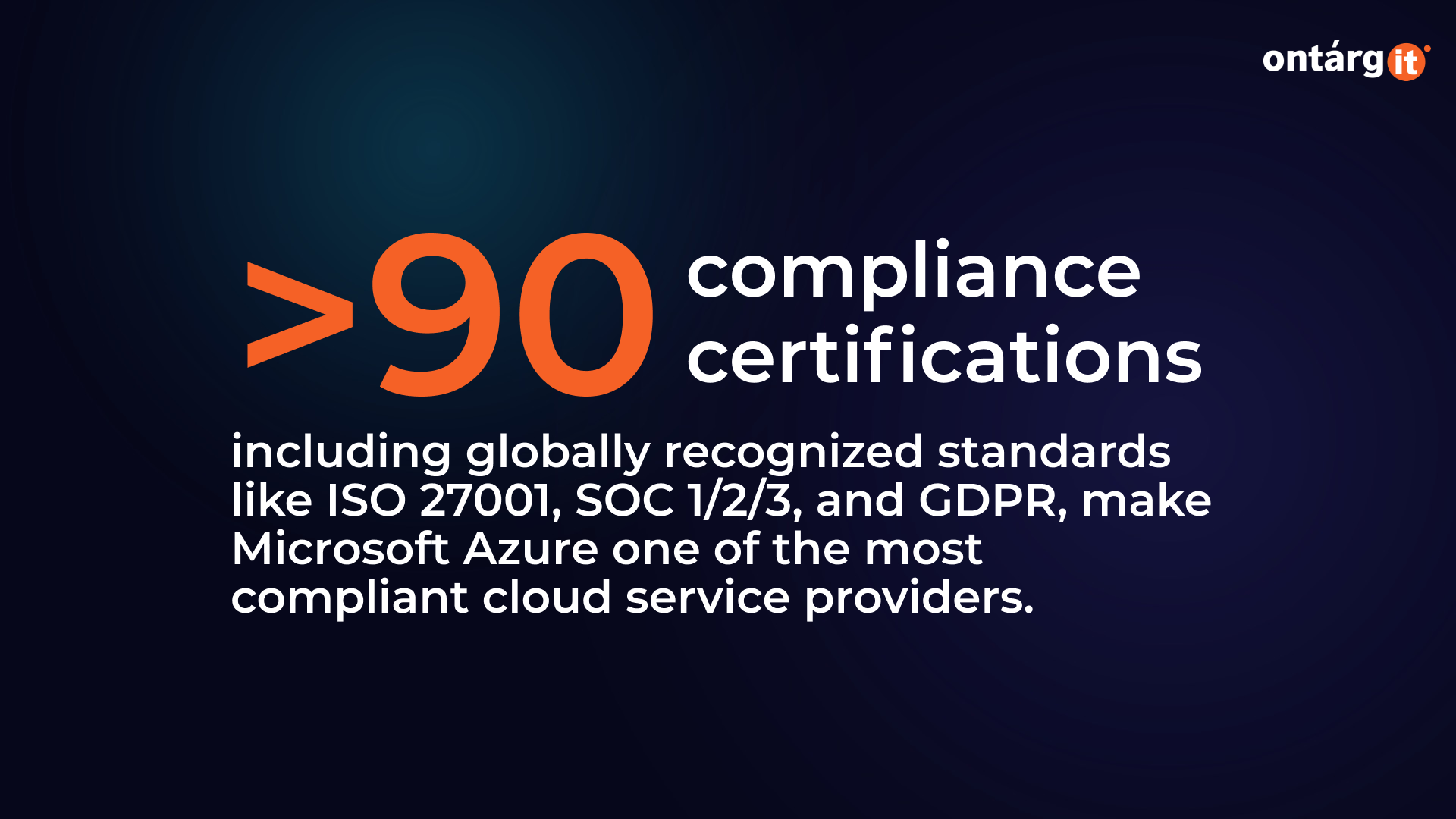The recent global pandemic has underscored the importance of business resilience, highlighting the need for companies to rapidly adapt their IT strategies to navigate a rapidly changing environment. This adaptation relies on having strong, flexible, and secure IT infrastructures that can sustain company operations regardless of any disruptions. Microsoft Cloud, particularly Microsoft Azure, offers the tools and platforms that organizations require to establish resilient operations, enabling them to thrive in uncertain times.
This article explores how leveraging Microsoft Cloud and Microsoft Azure can help companies bolster business resilience, highlighting key strategies and best practices that IT executives should consider.
What is business resilience?
Business resilience refers to a company's capacity to adapt, respond to, and recover from disruptions while maintaining its operational integrity. Unlike traditional disaster recovery, which primarily focuses on restoring IT infrastructure, business resilience encompasses the entire operation of the business. This approach ensures that the company continues to function effectively before, during, and after any disruption. Disruptions can encompass a wide range of issues, including cyberattacks, natural disasters, supply chain disruptions, and workforce shortages.
To effectively build business resilience, companies must adopt a multi-layered approach that combines strategy, technology, and process improvements. One of the most powerful tools in this endeavor is the cloud, particularly Microsoft Cloud services, including Microsoft Azure.

7 Essential Strategies for Building Business Resilience with Microsoft Cloud and Azure
To successfully navigate disruptions, companies must implement comprehensive strategies that integrate cutting-edge cloud solutions, such as Microsoft Azure. Here are seven essential tips:
- Plan for Worst-Case Scenarios with Cloud-Based Infrastructure
Contingency planning is crucial for navigating disruptions effectively. Organizations that leverage Microsoft Azure for cloud-based infrastructure gain the flexibility to deploy resources rapidly, scale up during periods of high demand, and recover seamlessly from unexpected events. Azure's robust disaster recovery capabilities, including Azure Site Recovery, allow companies to design flexible recovery plans that minimize downtime and data loss.
- Leverage Integrated Systems with Microsoft Cloud
Integrated systems break down silos between teams and departments, enabling seamless communication and enhanced productivity. Microsoft Cloud provides a suite of interconnected tools through Microsoft Azure, Microsoft 365, and Dynamics 365. With real-time information sharing and collaboration capabilities, these tools enhance business responsiveness, enabling teams to adapt to changes in market conditions or operational disruptions quickly.
- Improve Inventory Visibility with Microsoft Dynamics 365
Utilizing Microsoft Dynamics 365 within the Microsoft Cloud enables companies to gain real-time visibility into inventory, sales, and supply chain operations. This transparency enables businesses to adjust inventory levels according to market conditions, ensuring a more efficient and flexible response to disruptions. By deploying Dynamics 365, companies can minimize capital loss and avoid supply chain bottlenecks.
- Establish Robust Forecasting and Planning with Azure AI
Accurate forecasting is vital for maintaining operational continuity during disruptions. Microsoft Azure's AI and machine learning tools, including Azure Machine Learning, enable companies to analyze historical data and predict future trends. By integrating these insights into operational planning, organizations can swiftly adjust their supply and demand patterns, prepare for extreme weather conditions, and navigate economic shifts with confidence.
- Enhance Manufacturing Flexibility Using Azure IoT
Flexible manufacturing processes are crucial for meeting changing customer demands. Microsoft Azure offers Internet of Things (IoT) solutions that enable manufacturers to monitor equipment, optimize production lines, and quickly adapt to new requirements. Azure IoT Hub can provide real-time insights into production processes, enabling companies to respond quickly to market changes, ensuring that customer needs are met even during disruptions.
- Reduce Lead Times with Microsoft Cloud-Based Services
Microsoft Cloud services, such as Dynamics 365 Supply Chain Management and Azure Logistics, offer solutions for streamlining fulfillment processes, reducing lead times, and enhancing customer satisfaction. By leveraging these cloud-based tools, companies can automate repetitive tasks, minimize human error, and speed up order processing to maintain resilience during challenging periods.
- Drive Continuous Improvement and Innovation with Microsoft Azure
Resilient companies foster a culture of continuous improvement and innovation. Microsoft Azure supports this culture by providing a scalable platform for experimenting with new technologies, such as AI, data analytics, and machine learning. Azure DevOps services enable organizations to develop, test, and deploy new applications and services faster, driving constant evolution in product offerings, processes, and customer experiences.
Common Challenges in Building Business Resilience
Despite the clear benefits, companies often face challenges when building business resilience:
Microsoft Cloud Solutions for Resilience
Microsoft Cloud, through its suite of products—Microsoft Azure, Microsoft 365, and Dynamics 365—provides robust solutions to enhance business resilience:
- IT Infrastructure in the Cloud with Microsoft Azure
Microsoft Azure offers both Infrastructure as a Service (IaaS) and Platform as a Service (PaaS), enabling companies to tailor their cloud infrastructure to meet their specific needs. Azure's flexibility reduces dependency on physical hardware, simplifies remote connectivity, and provides robust data backup and recovery options, making it a key player in building resilient IT environments.
- Enhanced Collaboration with Microsoft 365
Effective communication and collaboration are vital during disruptions. Microsoft 365, with its integrated apps such as Teams, SharePoint, and OneDrive, enables employees to collaborate seamlessly from any location. This suite of tools supports remote work, streamlines workflows, and ensures that critical business information remains accessible and secure.
- Integrated Operations with Dynamics 365
Microsoft Dynamics 365 integrates various aspects of business operations, from finance to customer service, enhancing visibility and control. Its cloud-based nature enables companies to streamline processes, reduce costs, and proactively address customer needs. By leveraging Dynamics 365, businesses can ensure continuity and adaptability during unforeseen events.
Change Management for Business Resilience
Implementing new processes and cloud-based systems requires careful change management. A structured approach to change helps minimize resistance, accelerates adoption, and ensures that the full benefits of the new systems and strategies are realized.
Conclusion
Building business resilience requires a holistic approach, combining technology, strategic planning, and process improvements. Microsoft Cloud, particularly Microsoft Azure, offers a versatile platform to help companies strengthen their IT infrastructure, enhance collaboration, and streamline operations. By leveraging these tools, organizations can better adapt to disruptions, ensuring seamless and secure operations in any situation.
These capabilities are seamlessly integrated with the platform’s security, privacy, operational control, and reliability, enabled through encryption, multi-factor authentication, and advanced threat detection tools.
Users also retain full control over their data, with options to choose data residency and benefit from transparent access policies.

















